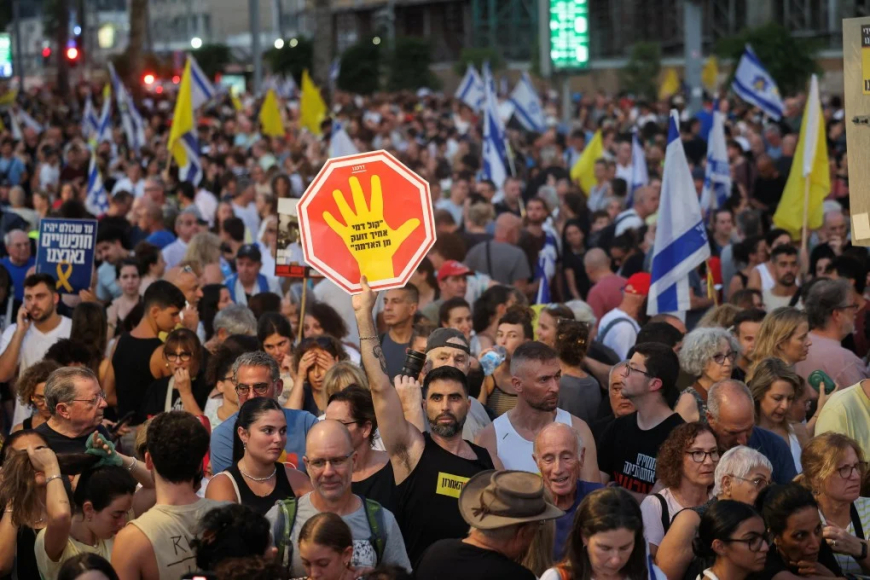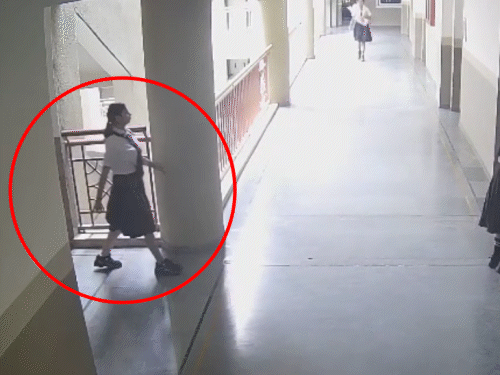Mass Protests Sweep Israel, Calling to End Gaza War and Free Hostages
Mass protests erupted across Israel on August 17, 2025, as thousands demanded an end to the Gaza war and the release of hostages. Families of captives led the demonstrations, intensifying political pressure on Prime Minister Netanyahu.

A Wave of Demonstrations Across Israel
On Sunday, August 17, 2025, Israel witnessed one of its largest waves of demonstrations in months, as tens of thousands of protesters filled the streets of major cities including Tel Aviv, Jerusalem, and Haifa. The rallies carried a unified message: end the Gaza war and secure the release of Israeli hostages still held by militant groups.
The protests come amid deepening political divides, humanitarian concerns, and mounting international pressure on the Israeli government to reassess its war strategy.
Calls for an End to the Conflict
The demonstrators, waving Israeli flags and carrying signs that read “Bring Them Home” and “Stop the War Now,” demanded that Prime Minister Benjamin Netanyahu’s government prioritize the safe return of hostages over continued military escalation in Gaza.
Organizers stated that the war, now stretching on for months, has cost thousands of lives on both sides while leaving millions displaced and international aid groups warning of worsening humanitarian crises.
One protester in Tel Aviv told reporters:
“We cannot continue to bury our young while our loved ones are still in captivity. This war has no endgame without negotiations.”
Hostage Families at the Forefront
Families of Israeli hostages played a central role in the protests, holding emotional vigils outside government buildings. Many carried photos of their loved ones, some missing since the October 2024 attacks.
Several hostage relatives accused the government of “using them as political pawns,” insisting that military operations have only endangered the captives. Their pleas echoed widely across the demonstrations, drawing significant media coverage.
Government’s Response
The Netanyahu administration has so far resisted calls for a ceasefire, maintaining that a halt in military operations would strengthen Hamas and other militant groups. Israeli officials argued that the war effort is essential to prevent future attacks.
However, cracks are beginning to show within the ruling coalition, with several lawmakers urging the government to consider diplomatic alternatives and explore mediated negotiations.
International observers note that the political fallout from the protests could intensify, particularly if the demonstrations continue to grow in scale.
International Reaction
The protests did not go unnoticed abroad. Several European governments reiterated calls for an immediate ceasefire, while U.S. officials expressed concern over the rising civilian death toll in Gaza.
The United Nations, which has been monitoring the humanitarian situation closely, again urged both sides to consider mediated talks to secure humanitarian corridors and the release of hostages.
For reference, the UN Human Rights Office recently published an update on the impact of the conflict, underscoring the grave human cost of ongoing military operations (source).
Humanitarian Crisis in Gaza
The war’s toll has been particularly devastating in Gaza, where infrastructure has collapsed, leaving hospitals overwhelmed and food supplies dangerously low. Aid agencies report that children are bearing the brunt of the crisis, with growing malnutrition and displacement.
Doctors Without Borders has repeatedly called for greater humanitarian access, emphasizing that the blockade and constant bombardments have left thousands without basic medical care (source).
Political Stakes for Netanyahu
The protests also highlight a broader political challenge for Netanyahu. Critics argue that his leadership style has alienated both moderates and conservatives within Israel, while his handling of the war has intensified scrutiny.
Some analysts warn that continued demonstrations could evolve into a wider political crisis, similar to the massive protests against his judicial overhaul plans earlier in 2023.
A Divided Nation
The demonstrations underscore a nation torn between security concerns and humanitarian responsibilities. While many Israelis remain deeply concerned about national security and the threat posed by Hamas, growing segments of society are demanding that peace negotiations be prioritized over military action.
The public debate increasingly centers on a single, difficult question: Can Israel simultaneously protect its citizens, recover its hostages, and bring an end to the cycle of war?
What Comes Next?
As Israel braces for further protests in the coming days, the government faces mounting pressure to outline a clear path forward. Whether through direct negotiations, international mediation, or a shift in military strategy, the choices made in the coming weeks may determine the region’s stability for years to come.
For now, the chants from Tel Aviv to Jerusalem remain united:
“End the war, bring them home.”
What's Your Reaction?
 Like
0
Like
0
 Dislike
0
Dislike
0
 Love
0
Love
0
 Funny
0
Funny
0
 Angry
0
Angry
0
 Sad
0
Sad
0
 Wow
0
Wow
0








































































